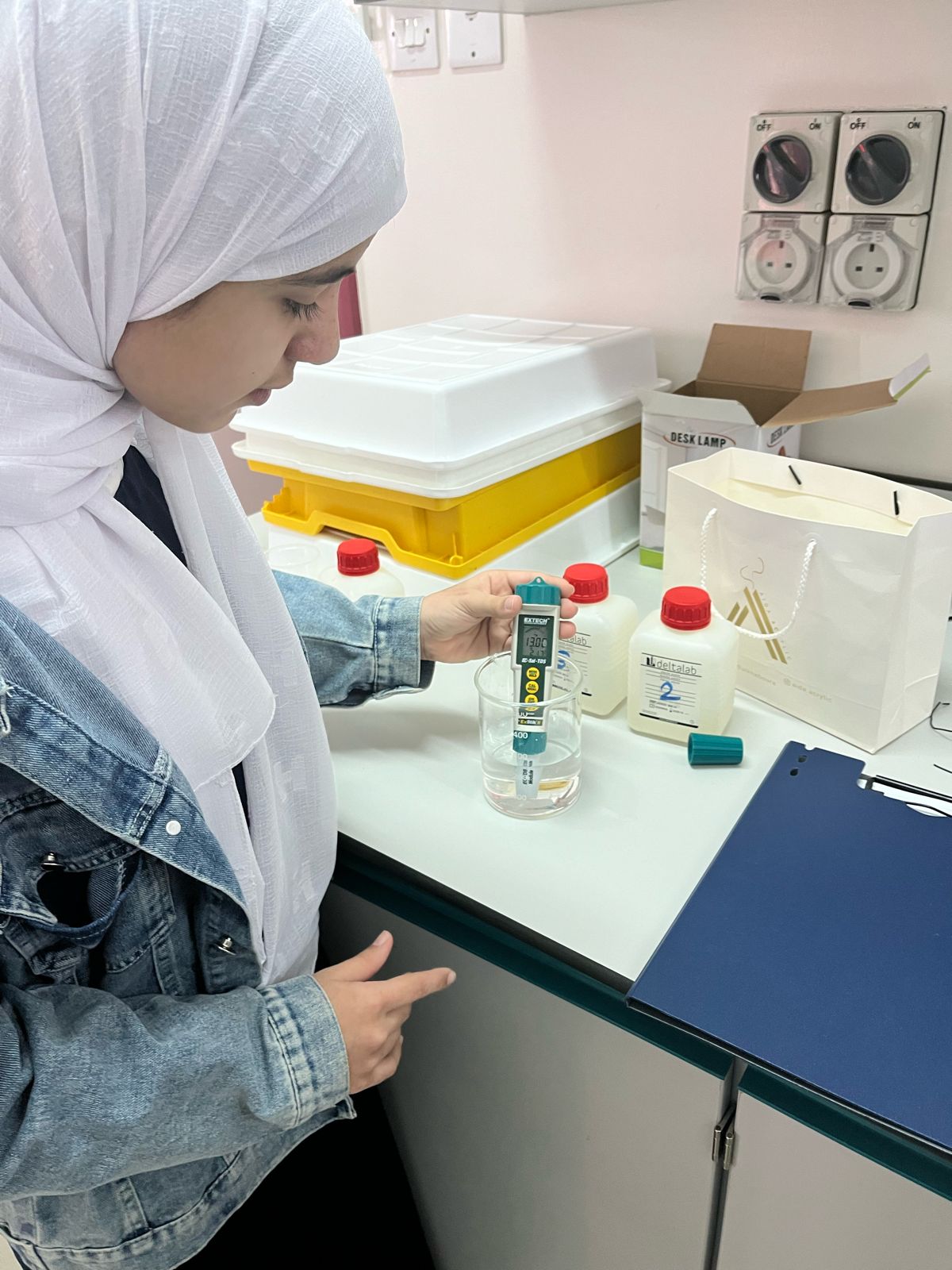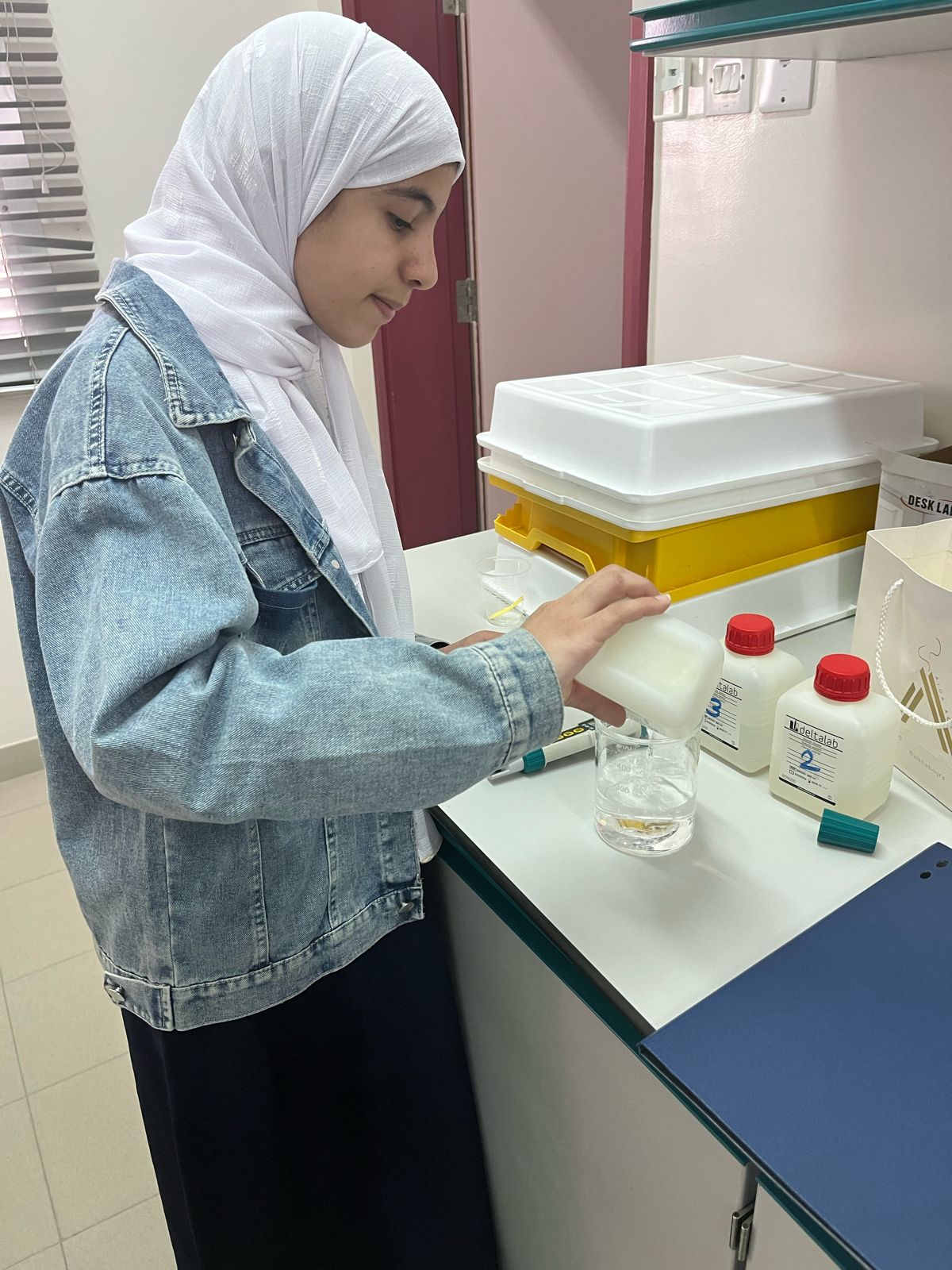Stars and STEM Stories
Al-Dubaishi, Ibri Students Study the Effect of Sewage on Well Water
Considering the presence of a sewage station in the Omani state of Ibri, GLOBE students of Al-Dubaishi wondered, "To what extent is well water affected by wastewater?" They wanted to know if there were trace amounts of sewage in the water, what the effect of this water on human health was, and how contaminated water could be treated.

The students did some research in order to determine the
suitability of the well water at a certain location. One student
explained, "I asked specialists and came up with the possibility
of using the amount of dissolved oxygen as an indicator. Wells are
contaminated with sewage, so I took three samples from wells near the
sanitation station and applied the Hydrosphere Protocol from The GLOBE Program."
The temperature, salinity, pH, and amount of dissolved oxygen data were taken. The students found a decrease in the amount of dissolved oxygen, which indicates that there is something consuming this dissolved oxygen. Then, in cooperation with the municipality of Ghobri, they were provided with a bacterial test, as a quantity was found in the wells. High bacteria, acidity and salinity results conformed to Omani standard specifications for drinking water. They concluded that the chemical readings of the wells may be in accordance with the specifications. Its taste is palatable to humans, but harm may come from microorganisms that people cannot sense.

Based on the study, the students recommend:
- The necessity of conducting periodic inspections of wells
- Publishing the results of the tests for citizens so that they are informed about the quality of the water
- Making signs on each well that include its suitability for use
Images courtesy Bader Salim, GLOBE Oman.





